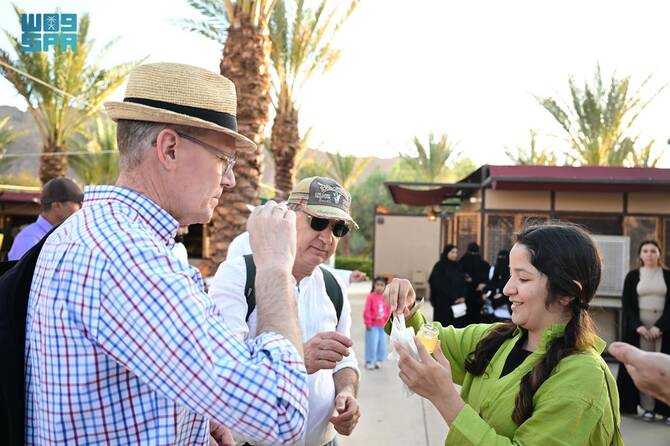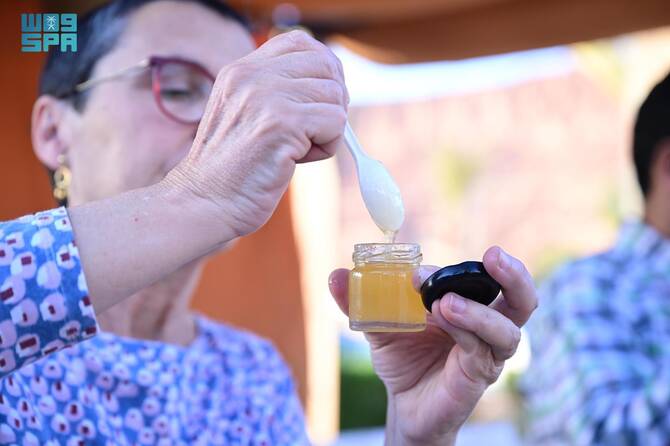RIYADH: As Hajj season approaches, pilgrims throughout Saudi Arabia are making lists, checking supplies, and organizing their thoughts for what many consider the most significant journey of their lives.
Alongside the spiritual preparations, pilgrims are packing Hajj suitcases with the traditional white garments and hygiene essentials as well as more personalized, thoughtful and even high-tech items.
From prayer lists and handwritten dua cards to smartwatches, earbuds, and journal notebooks, the modern pilgrim approaches Hajj not only with reverence but with intent, structure, and a little comfort.
For many, this approach reflects how deeply Hajj is embedded into the personal identity and emotional world of the pilgrim.
Arab News spoke with a few people who have previously completed Hajj to get an idea of what it is like to prepare for the pilgrimage.
“I packed my journal because I felt this experience deserved to be documented in detail,” Shatha Al-Jadaan, 25, told Arab News. “I also included my daily skincare products, easy-access snacks, and drip coffee sachets — lifesaver,” she added.
The contents of Al-Jadaan’s suitcase told the story of a young woman approaching Hajj with equal parts practicality and reflection.
Her essentials included headphones, a smartwatch and a hair dryer — items she considered necessary after each of the physically demanding rituals.
For her, the process of preparation brought a deep sense of meaning.
“What struck me the most was the realization that this journey is unlike any other,” she said. “The version of me leaving home is not the same one returning.
“That thought hit me hardest when I was writing prayer lists for loved ones. People sent very specific prayers, personal hopes and goals. I even made a separate list so I wouldn’t forget anyone, including myself.”
Some pilgrims take a simpler approach. For Ethar Abdulrahman, 22, the focus was on utility and peace of mind.
“My essentials were a toothbrush, toothpaste, shampoo, conditioner, body lotion, deodorant, underclothes, outerwear, hair ties and wet wipes,” she said. “And I only brought my personal phone — just to stay in touch with my family.”
What made her preparation emotional was the fact that it was her first Hajj — and at a young age.
“The idea that I was going on Hajj for the first time and at such a young age was emotional on its own. Packing my personal items and bringing prayer books made it even more special.”
She also relied heavily on advice from seasoned pilgrims: “Bring Panadol, fever reducers, painkillers, and muscle relief cream. That advice helped me a lot.”
Her words reflect the layered purpose of each item: some for health, some for spiritual focus, and some simply for emotional safety.
Al-Jadaan echoed the sentiment. “A lot of people told me to only wear cotton and make sure my shoes were extremely comfortable. And it was the best advice I received.”
The overlap between generational wisdom and modern convenience shows how today’s pilgrims are combining tradition with adaptation.
For Mariam Al-Osaimi, 27, essential oils were a must. “I brought lavender and peppermint oil. Lavender helped me sleep, and peppermint was great for energy. They became part of my daily Hajj routine — almost like a spiritual ritual.”
Others took folding prayer mats, lightweight Qur’an readers, and portable chargers — recognizing the role technology can play in navigating crowds, locating tents, or staying connected to family.
One of the more discreet but powerful changes to the modern Hajj experience is the seamless integration of digital tools. Most pilgrims now use digital Qur’an apps, prayer reminder apps, or even step counters to track their movement during the rites.
Abdulrahman Al-Ruwaili, 29, said his smartwatch was more than just a gadget. “I set reminders for prayer times, prayers for each ritual, and even tracked my heart rate on the way to Jamarat,” he said.
“It helped me stay focused, grounded, and aware of how my body was responding, in case of potential panic attack due to my medical condition.”
While some may frown at these modern additions, many people see them as useful companions in the demanding spiritual and physical journey.






























